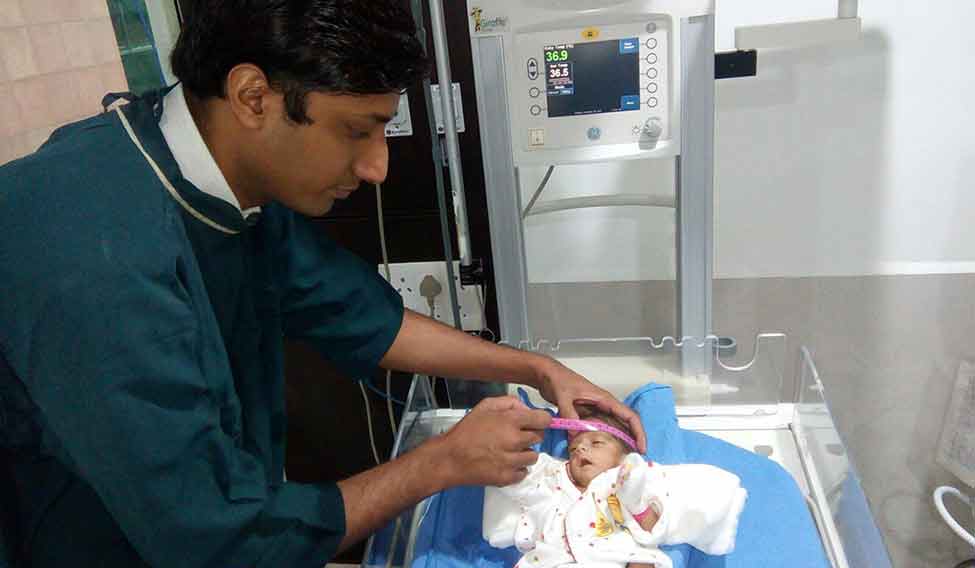The thought of giving antibiotics to babies and making them susceptible to drug resistance had always rattled Dr Sunil Agrawal. But the fear that even a mild infection could prove fatal for the newborn has made the decision difficult for neonatologists. “Of course, we are taught to use antibiotics judiciously, but how strictly do we adhere to this principle when we suspect infection in a newborn is a difficult decision to make,” says Agrawal, head neonatologist at Fortis Hospital in Mohali.
The test came recently when Agrawal had a 27-week-old premature baby that weighed just 730gm in the neonatal intensive care unit. Most of her organs were underdeveloped. The baby couldn't breathe on her own, so she was put on ventilator.
“From breathing to feeding, everything had to be externally supported. The chances of infection were high,” says Agrawal. “Infection claims most lives in premature births. On an average, only 40 per cent of such premature babies survive in India. Each day an infant spends in the hospital increases his or her chances of catching an infection.”
Agrawal took it up as a challenge to ensure that the baby didn't catch any infections. A nurse was assigned the duty of attending exclusively to the baby. The nurse had to wash her hands before handling the baby or any of her things. The baby was placed on sterile sheets that were changed twice a day while her diapers were changed every hour. Only disposable equipment was used.
The baby was given expressed breast milk instead of formula milk. “Mother's milk has immunological qualities. Besides, chances of contamination are low,” says Agrawal.
The parents were advised against bringing any visitors. And, doctors kept a close watch on the baby's daily blood report. “On two occasions, the baby’s white blood cell and platelet counts dropped dramatically,” says Agrawal. “It could be because of infection. In normal circumstances, a doctor would start antibiotics as a precautionary measure. But we did not because the baby's c-reactive protein level, which indicates the presence of an infection and is checked through a blood test, was within the normal range.”
For 63 days that the baby remained in the NICU, Agrawal and his team were on their toes. “The baby's health was our prime concern. We knew that we could set an example for others to follow, so we didn't want to leave any gaps in our efforts,” says Sushma Devi, head nurse, who has been taking care of premature babies for the past seven years. “It was good to see the baby growing under our care. At the time of discharge, the baby weighed 1,410 grams and was quite healthy.”
For Agrawal, the biggest achievement was that the baby was not given antibiotics even once during her hospital stay. “Unfortunately, most neonatologists, including me, start antibiotics as soon as a sick infant is admitted in the NICU,” he says. “It is difficult to resist the use of antibiotics if the baby's platelet count drops below the normal range. But this case taught me that it is important to do a screening for infection to justify the decision to use antibiotics.”
Dr Purva Mathur, additional professor, laboratory medicine at All India Institute of Medical Sciences, New Delhi, calls it a remarkable feat. “It is said that if the usage of any device—ventilator, feeding tube or urinary catheter—exceeds 10 days, 50 per cent babies would acquire some or the other infection,” she says. “For a baby to survive 63 days in a neonatal intensive care unit, you need highly intensive monitoring.”
Most people today buy antibiotics over the counter without realising the harm it could do to their resistance. “Infections with multi-drug resistant bugs are increasing. One main reason for it is the misuse and overuse of antibiotics,” says Dr Gurbir Singh, medical director, Fortis Hospital, Mohali. “Injudicious use of antibiotics predisposes a person to acquire infection with multi-drug resistance organism.”








